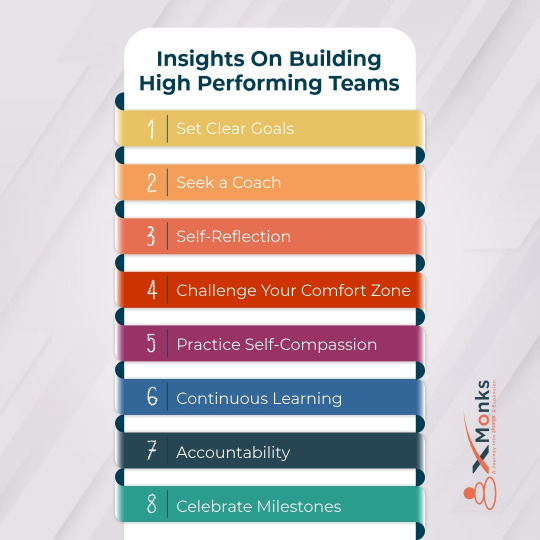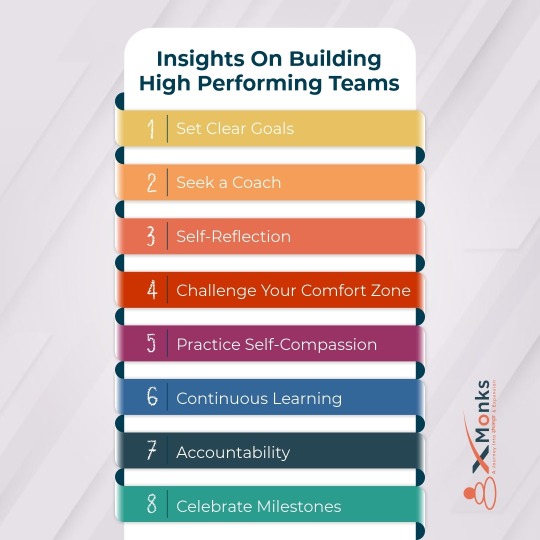Don't wanna be here? Send us removal request.
Text
The Professional Certified Coach (PCC) credential is the second in a three-part series of credentials offered by the International Coaching Federation (ICF), the other two being the Associate Certified Coach (ACC) and the Master Certified Coach (MCC). These credentials are professional certifications indicative of the standards that a coach has met in the industry of coaching. It also shows that the coach follows strong ethical practices within the profession. Credential equals credibility and credibility leads to respect among clients. The credential showcases the coach as a model professional committed to the advancement of the coaching industry.
0 notes
Text
In a world that is constantly evolving and presenting new challenges, the quest to unlock and maximise human potential has become more vital than ever. Coaching, as a transformative practice, stands at the forefront of this endeavour, offering individuals a profound journey towards self-discovery, growth, and empowerment. Let’s delve deeper into the transformative power of coaching and how it enables individuals to unleash their boundless potential.

0 notes
Text

In a world that is constantly evolving and presenting new challenges, the quest to unlock and maximise human potential has become more vital than ever. Coaching, as a transformative practice, stands at the forefront of this endeavour, offering individuals a profound journey towards self-discovery, growth, and empowerment. Let’s delve deeper into the transformative power of coaching and how it enables individuals to unleash their boundless potential.
0 notes
Link
The walk to awareness is a journey of self-discovery. It’s when we take a step back, notice the world around us, and pay attention to the details that we might usually overlook.
This is particularly relevant in coaching because a coach needs to be aware of their thoughts, emotions, and surroundings to gain a better understanding of themselves and the world they inhabit and to slow down and become more present, which enables them to focus on their goals and achieve personal and professional growth.
7 notes
·
View notes
Link
The business world is changing, and with it, so is the way we think about leadership.
For too long, extroverts have been hogging the leadership limelight with their loud, boisterous ways. But we introverts, have had enough, and we’re not going to take it anymore.
Let’s face it, the idea that leaders have to be loud and extroverted is a myth. Studies have shown that introverted leaders can be just as effective, if not more so, than their extroverted counterparts.
0 notes
Link
“Coaching is unlocking a person’s potential to maximize their own performance. It is helping them to learn rather than teaching them.”
~Timothy Gallwey
A coach helps their clients identify their strengths and weaknesses, set goals, and work towards achieving them. Coaching is not about giving advice or solutions but rather about facilitating the learning process and empowering the person to take ownership of their development.
0 notes
Link
The term ‘Quit Leadership’ might seem like an odd pairing – like matching stripes with polka dots or wearing socks with sandals.
In the cutthroat world of business, we often hear stories of big-shot CEOs like Steve Jobs or Henry Ford, who built successful empires through sheer force of personality and a ruthless streak a mile wide. While these stories are certainly entertaining, they overlook a different type of leader who operates under the radar: the ‘quiet leader’. Think of them as the ninja of the boardroom – stealthy, strategic, and deadly effective, but without all the flashy moves and bragging rights.
These cases are frequent and can produce fascinating stories and outcomes when appropriate, but there is another kind of leader who isn’t in the spotlight as much. These are the ‘quiet leaders’.
0 notes
Link
2 notes
·
View notes
Link
Coaching is not just a skill; it’s an art that requires constant learning and improvement. As a leader, you may have the best intentions to coach your team, but without the right resources, it can be challenging to know where to start. This is where coaching books come in – they offer insights, techniques, and real-life stories from experienced coaches that can help you enhance your skills and better serve your team.
As legendary basketball coach John Wooden once said, “It’s what you learn after you know it all that counts.” Wooden was a firm believer in the value of continuous learning, and that’s a sentiment shared by many successful coaches. In the field of leadership coaching, there are many books that offer valuable insights and techniques for coaches looking to improve their skills.
0 notes
Link
A lot has been said about psychological well-being and our well-being as humans in general, but hardly has anyone talked about psychological well-being at work. This is the cord that I attempt to touch through this blog.
Work can make you sick – and work can make you happy. Depending on who you are, what you do, and how you are treated at work, one of these things is deemed to happen. And the fact that we spend the majority of our awake hours at work makes this even a bigger concern.
0 notes
Link
What’s holding you back from being more productive at work? Do you squander your energy on busy work that you enjoy? Or has the same problem been knocking on your door each morning?
You probably have a long list of things to do but not enough time to get them all done. Maybe you convince yourself to just get it done, skipping lunch and working longer hours. Maybe you just throw your hands in the air, admit that you can’t do it all, and start putting out the biggest fires or greasing the loudest wheels. And yet, you are aware of how satisfying it is to work diligently, finishing off those meaty projects that have been piling up for a long time in addition to tackling challenging and time-consuming undertakings.
0 notes
Link
Life is a journey. Your adventure begins the moment you were born and will continue for as long as you’re alive. Though you were forced to start it, you do have a say in what you do with the time you have at hand. Knowing what kind of journey you want to pursue will determine whether your life is one of happenstance or has a clear purpose and direction. You require a compass, a sense from within of what is truly important to you.
Do you know what is most important in your life, then? Are you certain? And are you consciously leading a life that matters? If not, you should get up. You live this existence. Nobody can live it for you but you. Furthermore, it is important that you live it since you already are. Numerous other individuals, as well as yourself, are impacted by the way you live. It is crucial to comprehend this. You can live your life as if all you have to do is survive until the time runs out, or you can make the most of each and every moment you have.
0 notes
Link
Are you a coach?
Let me guess, the answer is yes.
Are you considering taking the next step in your career as a coach?
And now for the issue… Not just any coach will do for you. You aspire to be a Master coach. An actual Caring Coach. A Passionate and Diligent Coach. A coach who believes in keeping promises to clients.
0 notes
Link
Philosophy, as it is understood and practised, is and has been generally considered to be the search for truth.
Man has always been on a never-ending pursuit for the truth. Religious, philosophical, and scientific schools of thought have attempted to explain the nature of reality throughout human history in a variety of cultures and civilizations. Humans have frequently become embroiled in conflicts between religious, philosophical, and scientific views, in a true labyrinth of theories and conceptions, rather than discovering it.
People cannot really be careless about whether or not what they know is true. If they find it to be false, they reject it; yet, if they can prove it to be true, they feel rewarded.
0 notes
Link
According to a popular story, once upon a time, the former president John F. Kennedy was travelling to the NASA headquarters. John F. Kennedy made his first trip to the NASA headquarters in 1961. While touring the facility, he introduced himself to a janitor who was cleaning the floor and asked him what he did at NASA. “I’m helping to put a man on the moon,” the janitor replied.
The janitor got it. He was aware of NASA’s goals and how he fits into them. He had a purpose. The janitor understood the reason for doing his job, something that most of us find difficult. He maintained the building’s cleanliness so that the astronauts, scientists, and engineers could concentrate on their quest to put a “man on the moon.”
0 notes
Link
Forgiveness if traced back, is a sibling of Acceptance.
To put it in perspective, I think we can link one emotion to another. We are pretty aware of which emotion results in another or what stems from what.
Anger if not controlled turns to Rage and Hate, while little Kindness in the moment of hardships stems Trust and fosters Love.
0 notes
Link
We all have a benchmark for being uncomfortable. Each person has a different threshold, which varies in intensity. Your comfort level with discomfort increases as your threshold rises.
We must often face uncomfortable circumstances if we are to develop and learn. For instance, lifting large weights is necessary if you want to get stronger. Instead of spending the entire day at home binge-watching Netflix, you should write more frequently if you want to enhance your writing.
There is no way for you to develop as a person if you constantly stay in your comfort zone and steer clear of circumstances where you might fail or feel uncomfortable. This is what Emmanuel David talks about in his session with xMonks, at coaching matters. Here is a transcripted version of the same.
0 notes